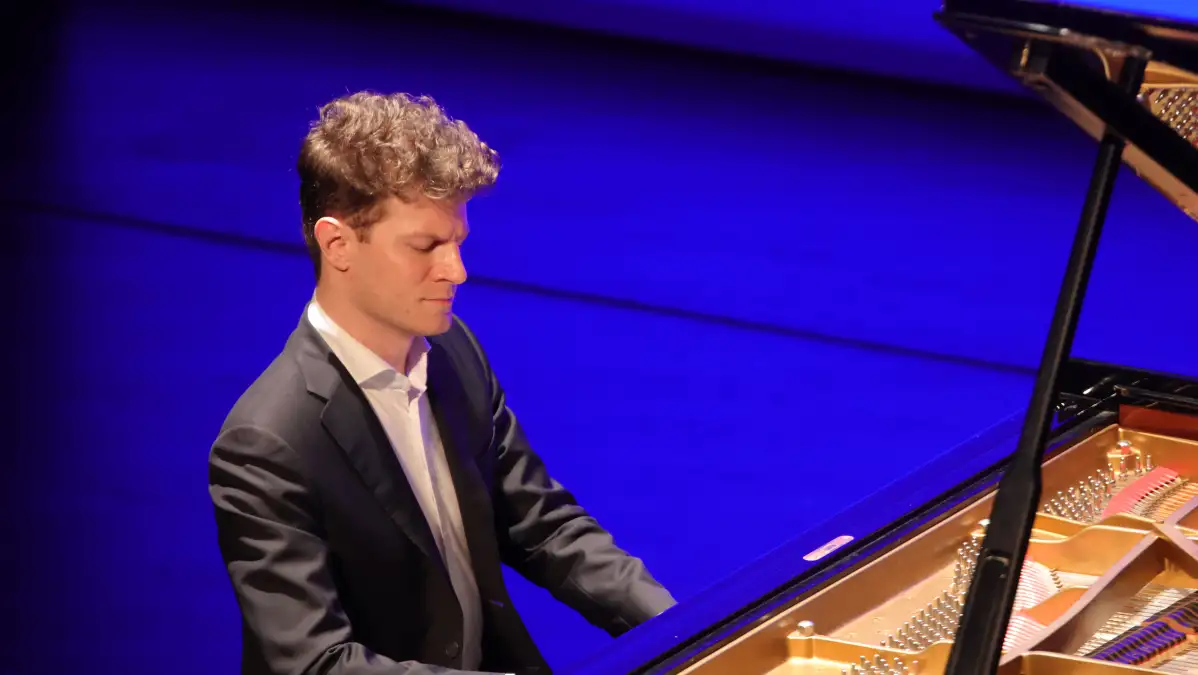The citizen-led initiatives that emerged in the GDR in the fall of 1989 were called “Aufbruch 90,” the “Knowledge for the People” movement, or the “Forum for Direct Democracy.” They produced large quantities of publications, concept papers and letters. During this time and in the weeks that followed, a variety of ideas emerged about how the state – whether a continuing German Democratic Republic or a unified Germany – could be reformed through the active participation of citizens, and how a “true” democracy could be created. As historian Cristina Morena has put it, it was “a wild, thirsty fantasy of democracy” that came to life. There wasn’t much to leave.
Three decades later, the same region that witnessed a peaceful democratic revolution has an above-average number of far-right party members. Opinion polls currently indicate that the Alternative for Germany (AfD) party is the strongest party in almost all East German states. “How can the democratic mobilization of a self-liberated society become fertile ground for an anti-democratic revolution?” asks the history professor, who was born in Frankfurt/Oder in 1976 and now teaches in Bielefeld.
Different concepts of the state in the East and the West
In search of an answer, Morena does not follow the usual East-West debates “according to the usual logic of sensationalism and attribution,” blaming the West for the turmoil that occurred in the so-called post-reunification period. Instead, she chooses a different approach: she describes “the nature and changes in the democratic and civic self-image of Germans in the East and West before and after the turning point of 1989,” that is, from a comparative perspective and with reference to history. The time of the two states.
Departure of State Support, 3 October 1990: State Concert at the Philharmonic Orchestra in honor of German reunification.
(Photo: Regina Shmekin/Regina Shmekin)
Her interest lies in “the democratic world of the ideas, expectations, and experiences of ‘perfectly normal’ citizens.” For this purpose, Morena reviewed and analyzed written evidence from two decades ago, from the decade before and after reunification. It uses largely unexplored sources: letters preserved in the Federal Archives to Federal Presidents Karl Carstens and Richard von Weizsäcker, as well as letters from citizens intercepted or delivered by the Ministry of State Security of the GDR and addressed to the state and party leadership, ministries and the media. . In the German Democratic Republic; as well as relevant petitions, pamphlets, signature collections and private letters addressed to the citizens’ movement “Neues Forum” and existing or newly emerging newspapers in the opposition archives in Berlin and Leipzig; Finally, thousands of citizens’ letters addressed to the Joint Constitutional Committee of the Bundestag and the Bundesrat, which met in 1992/93 and emerged from the Unification Treaty, were primarily concerned with designing the constitution for a unified Germany.
Through this “intertwined perspective,” Morena explores the question of how “Germans in East and West understood themselves as citizens and to what extent their understandings of the state and democracy differed and differed.” Through her arsenal of ideas, concepts, projects and initiatives, Morena tells a historically unique story of democracy from below.
Identification with the “Socialist Homeland”
The differences are significant, as can be seen from the written collections. One of Morena’s findings is that West German letter writers, despite the fundamental criticisms to which they were sometimes subjected, “did not fundamentally distance themselves from the state as a whole” – in marked contrast to the mail of German Democratic Republic citizens, which was “more Confrontational in tone, substance and content.” Often downright hostile.” However, East German citizens were more involved in social committees than West Germans. The Constitution of the German Democratic Republic defined the basic rights of its citizens as follows: sharingright. On the other hand, the Basic Law defines fundamental rights as follows: defenseRights that primarily protect citizens from government interference and infringement.
One of 1,000 Departures: Man hits the Berlin Wall with a hammer.
(Photo: Regina Shmekin/Regina Shmekin)
The German Democratic Republic was a participatory state, or “participatory dictatorship,” as the British historian Mary Fulbrook called it. Slogan: “Plan with us, work with us, rule with us!” Not only was it found in Article 21 of the Constitution, but it also adorned countless corporate wall newspapers. With the socialist principle of common self-determination, the Socialist Unity Party had an effective means of disciplining each individual. At the same time, according to Morena, “over the past decades, a strong sense of community, a sense of civic responsibility towards one’s living environment and the immediate surrounding environment has developed in many places at the local and regional level. Because one can work for the “socialist homeland” “even outside or even against the harassment of local party officials.” The downside of this “unique civic spirit and virtuous regionalism” was that “most residents of the GDR sympathized with their country and its social and even socialist ideals, but rarely with the state and its institutions.”
Tens of thousands of submissions to Erich Honecker personally
A curious development in the relationship between citizens and the state was the entry system invented by the Social Democratic Party, which replaced the independent administrative judiciary that had been abolished in 1952. East German citizens had no opportunity to assert their individual rights against state institutions. Instead, Germans in the GDR, like their king’s Prussian subjects, were allowed to send petitions to their father, Erich Honecker, in person. In 1988 alone, in his last full year in office, nearly 29,000 GDR citizens addressed their concerns directly to the Premier, many of them taking back the coveted word of “approval.” Unfortunately, Morena pays little attention to this path charted by the state to convey her desires to the authorities. The complaint letters seized by the State Security Service, which it uses to compare East and West, represent only the “passive-hostile” end of citizen mail, in the words of the Stasi.
The concepts of state and citizenship developed radically differently in the West than in the German Democratic Republic. “During 1968, the federal republican community… had opened up, liberalized, and in the long term pluralistic,” Morena says. There was no similar turning point in the German Democratic Republic. Voices from the East “point to a fundamental normative ideological position that should not be underestimated, which shapes East German political culture to this day: closeness to discourses of normalization and ideas of the authoritarian leadership of the New Right, and unfamiliarity with pluralism.” Of more combative views and democracy, an equal distance between the West and the East, specifically Russia, based on geopolitics or great power politics, and last but not least, a view of history relatively unaffected by Nazi crimes.
“Popular sovereignty instead of party rule”
Morena suspects that the legacy of state-imposed anti-fascism in the GDR, “a largely neglected or ideologically distorted survey of the past,” may have “contributed to the long-term strength of right-wing populism and extremism in the GDR.” East.” The AfD, founded in the West as a liberal national project, found favorable conditions for its rise and radicalization here due to “the structurally higher level of support for authoritarian and racist positions.”
A rocky journey toward democracy: Shortly after the fall of the Berlin Wall, a road in Berlin was leveled with a vibrating plate in preparation for a border crossing that had not yet opened.
(Photo: Regina Shmekin/Regina Shmekin)
Post-socialist democratic discourse in East Germany in the 1990s was defined by the fear of renewed abuse of power and corruption in the state and administration, a fundamental distrust of parties and parliaments, and, derived from this, by the demand for ‘popular sovereignty’. Rather than party rule,” said an East German letter writer.
Most programmatic drafts of the period of turmoil in the GDR revolved around popular democratic ideas, as a complement or counterproposal to the parliamentary system of the Federal Republic. However, in the Volkskammer elections of March 1990, a large majority of East German voters voted for parties that paved the way for representative democracy. At that moment, the concrete promise of rapid unification and the introduction of a democratic model outweighed abstract constitutional debates.
No new constitution was created
All medium-term attempts to incorporate direct democratic and referendum elements into the Basic Law failed in 1994, when the Joint Constitutional Committee of the Bundestag and the Bundesrat suspended its work, due to the political majority in Parliament. The East German cultural scholar Wolfgang Thiers, now a member of the Social Democratic Party, had argued in vain that the “positive experience” of the democratic awakening in the fall of 1989 corresponded “in a surprising way to the state of weak party democracy in old Germany.” A federal republic.” Efforts by prominent intellectuals, artists and journalists from East and West to create a new constitution reached by referendum have also failed despite significant media coverage. After all, direct democratic practices have recently been discussed and tried at the federal level, for example with So-called citizens’ councils.
Cristina Morena: A thousand departures. The Germans and their democracy since the 1980s. Seidler Verlag, Munich 2023. 400 pp., €28. E-book: €19.99.
(Photo: The Settlers)
However, it remains questionable whether increased citizen participation will lead to greater acceptance of the democratic system. Although popular legislative measures have been enshrined in all five East German state constitutions, surveys show that satisfaction with democracy is always 15 to 20 percentage points lower than values in West Germany.
Cristina Morena’s perspective on German history and democracy since the 1980s shows that there are understandable reasons for East Germany’s sometimes stubborn political developments. Drawing firm conclusions from this remains a political task for the state.
Norbert F. Putzel is a journalist from Germany. Among other things, he has a biography about him Eric Honecker Wolfgang Vogel as well as the book The Trohand Complex.

“Explorer. Communicator. Music geek. Web buff. Social media nerd. Food fanatic.”







More Stories
Civil rights leader Dizzy Betts and singer Johnny Cash replace Arkansas statues at the US Capitol
Physicists say they may have detected a powerful glitch in the universe
Alexander Krichell concert review